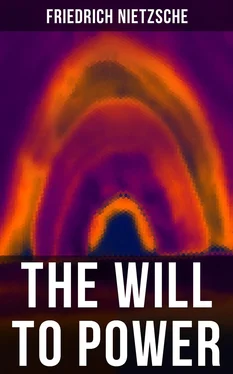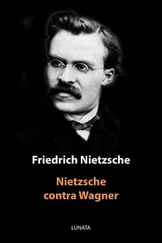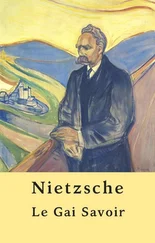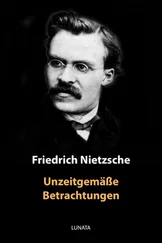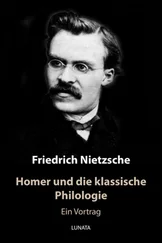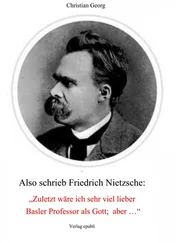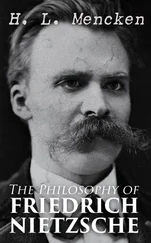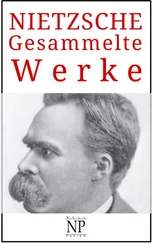38.
Just lately an accidental and in every way inappropriate term has been very much misused: everywhere people are speaking of " Pessimism ," and there is a fight around the question (to which some replies must be forthcoming): which is right—Pessimism or Optimism?
People have not yet seen what is so terribly-obvious—namely, that Pessimism is not a problem but a symptom, —that the term ought to be replaced by "Nihilism,"—that the question, "to be or not to be," is itself an illness, a sign of degeneracy, an idiosyncrasy.
The Nihilistic movement is only an expression of physiological decadence.
39.
To be understood :—That every kind of decline and tendency to sickness has incessantly been at work in helping to create general evaluations: that in those valuations which now dominate, decadence has even begun to preponderate, that we have not only to combat the conditions which present misery and degeneration have brought into being; but that all decadence, previous to that of our own times, has been transmitted and has therefore remained an active force amongst us. A universal departure of this kind, on the part of man, from his fundamental instincts, such universal decadence of the valuing judgment, is the note of interrogation par excellence, the real riddle, which the animal "man" sets to all philosophers.
40.
The notion "decadence":—Decay, decline, and waste, are, per se, in no way open to objection;they are the natural consequences of life and vital growth. The phenomenon of decadence is just as necessary to life as advance or progress is: we are not in a position which enables us to suppress it. On the contrary, reason would have it retain its rights.
It is disgraceful on the part of socialist-theorists to argue that circumstances and social combinations could be devised which would put an end to all vice, illness, crime, prostitution, and poverty.... But that is tantamount to condemning Life ... a society is not at liberty to remain young. And even in its prime it must bring forth ordure and decaying matter. The more energetically and daringly it advances, the richer will it be in failures and in deformities, and the nearer it will be to its fall. Age is not deferred by means of institutions. Nor is illness. Nor is vice.
41.
Fundamental aspect of the nature of decadence: what has heretofore been regarded as its causes are its effects.
In this way, the whole perspective of the problems of morality is altered.
All the struggle of morals against vice, luxury, crime, and even against illness, seems a naïveté, a superfluous effort: there is no such thing as " improvement " (a word against repentance ).
Decadence itself is not a thing that can be withstood : it is absolutely necessary and is proper to all ages and all peoples. That which must be withstood, and by all means in our power, is the spreading of the contagion among the sound parts of the organism.
Is that done? The very reverse is done. It is precisely on this account that one makes a stand on behalf of humanity.
How do the highest values created hitherto stand in relation to this fundamental question in biology ? Philosophy, religion, morality, art, etc.
(The remedy: militarism, for instance, from Napoleon onwards, who regarded civilisation as his natural enemy.)
42.
All those things which heretofore have been regarded as the causes of degeneration, are really its effects.
But those things also which have been regarded as the remedies of degeneration are only palliatives of certain effects thereof: the "cured" are types of the degenerate.
The results of decadence : vice—viciousness; illness—sickliness; crime—criminality; celibacy—sterility; hysteria—the weakness of the will; alcoholism; pessimism, anarchy; debauchery (also of the spirit). The calumniators, underminers, sceptics, and destroyers.
43.
Concerning the notion "decadence." (1) Scepticism is a result of decadence: just as spiritual debauchery is.
(2) Moral corruption is a result of decadence (the weakness of the will and the need of strong stimulants).
(3) Remedies, whether psychological or moral, do not alter the march of decadence, they do not arrest anything; physiologically they do not count.
A peep into the enormous futility of these pretentious "reactions"; they are forms of anæsthetising oneself against certain fatal symptoms resulting from the prevailing condition of things; they do not eradicate the morbid element; they are often heroic attempts to cancel the decadent man, to allow only a minimum of his deleterious influence to survive.
(4) Nihilism is not a cause, but only the rationale of decadence.
(5) The "good" and the "bad" are no more than two types of decadence: they come together in all its fundamental phenomena.
(6) The social problem is a result of decadence.
(7) Illnesses, more particularly those attacking the nerves and the head, are signs that the defensive strength of strong nature is lacking; a proof of this is that irritability which causes pleasure and pain to be regarded as problems of the first order.
44.
The most common types of decadence : (1) In the belief that they are remedies, cures are chosen which only precipitate exhaustion;—this is the case with Christianity (to point to the most egregious example of mistaken instinct);—this is also the case with "progress."
(2) The power of resisting stimuli is on the wane—chance rules supreme: events are inflated and drawn out until they appear monstrous ... a suppression of the "personality," a disintegration of the will; in this regard we may mention a whole class of morality, the altruistic, that which is incessantly preaching pity, and whose most essential feature is the weakness of the personality, so that it rings in unison, and, like an over-sensitive string, does not cease from vibrating ... extreme irritability....
(3) Cause and effect are confounded: decadence is not understood as physiological, and its results are taken to be the causes of the general indisposition:—this applies to all religious morality.
(4) A state of affairs is desired in which suffering shall cease; life is actually considered the cause of all ills— unconscious and insensitive states (sleep and syncope) are held in incomparably higher esteem than the conscious states; hence a method of life.
45.
Concerning the hygiene of the "weak." All that is done in weakness ends in failure. Moral: do nothing. The worst of it is, that precisely the strength required in order to stop action, and to cease from reacting, is most seriously diseased under the influence of weakness: that one never reacts more promptly or more blindly than when one should not react at all.
The strength of a character is shown by the ability to delay and postpone reaction: a certain ἀδιαφορία is just as proper to it, as involuntariness in recoiling, suddenness and lack of restraint in "action," are proper to weakness. The will is weak: and the recipe for preventing foolish acts would be: to have a strong will and to do nothing—contradiction. A sort of self-destruction, the instinct of self-preservation is compromised.... The weak man injures himself .... That is the decadent type .
As a matter of fact, we meet with a vast amount of thought concerning the means wherewith impassibility may be induced. To this extent, the instincts are on the right scent; for to do nothing is more useful than to do something....
Читать дальше
